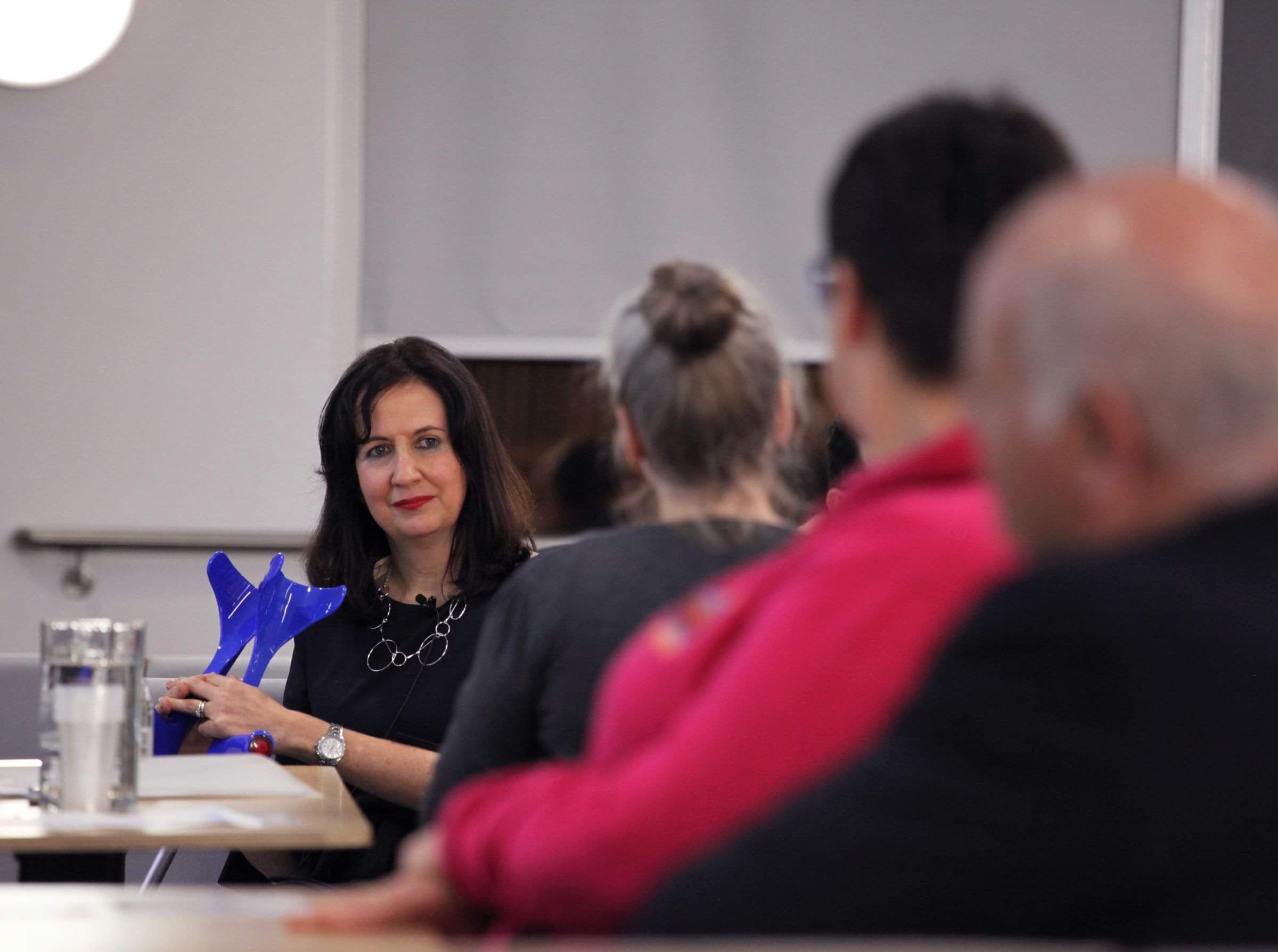Equality
If the UK were more equal we would all benefit. Evidence suggests that if we halved inequality many of society's problems would be reduced significantly. Read on to found out why we should bother.

Making life better for everyone
Why bother?
Evidence1 suggests that if we halved inequality in the UK:
- Murder rates could halve.
- Mental illness could reduce by two thirds.
- Imprisonment could reduce by 80%.
- Teen births could reduce by 80%.
- Levels of trust could increase by 85%.

Who cares?
Well – who said this in 2009?
 among the richest countries, it's the more unequal ones that do worst according to almost every quality of life indicator... per capita GDP is much less significant for a country's life expectancy, crime levels, literacy and health than the size of the gap between the richest and poorest in the population… We all know, in our hearts, that as long as there is deep poverty living systematically side by side with great riches, we all remain the poorer for it". 2
among the richest countries, it's the more unequal ones that do worst according to almost every quality of life indicator... per capita GDP is much less significant for a country's life expectancy, crime levels, literacy and health than the size of the gap between the richest and poorest in the population… We all know, in our hearts, that as long as there is deep poverty living systematically side by side with great riches, we all remain the poorer for it". 2
 among the richest countries, it's the more unequal ones that do worst according to almost every quality of life indicator... per capita GDP is much less significant for a country's life expectancy, crime levels, literacy and health than the size of the gap between the richest and poorest in the population… We all know, in our hearts, that as long as there is deep poverty living systematically side by side with great riches, we all remain the poorer for it". 2
among the richest countries, it's the more unequal ones that do worst according to almost every quality of life indicator... per capita GDP is much less significant for a country's life expectancy, crime levels, literacy and health than the size of the gap between the richest and poorest in the population… We all know, in our hearts, that as long as there is deep poverty living systematically side by side with great riches, we all remain the poorer for it". 2How does the UK rate?
Click here to see the Equality Trust's chart. It shows how the UK compares to 18 other affluent countries using 10 key health and well-being indicators.
The UK: some numbers
| Social group | Estimated % of UK population | Contribution and recognition |
| Women | 51% |
|
| People with disabilities | 18% |
|
| Black, Asian and people from other ethnic minorities | 10% |
|
| Lesbians and gay men | 6% |
|
UK leadership
 There is broad agreement that a board made up of individuals with a variety of skills and experiences has a positive effect on corporate performance. Ensuring that board members are drawn from different backgrounds introduces a wider range of perspectives. This is integral to effectively overseeing company strategy, risk mitigation and management performance."
There is broad agreement that a board made up of individuals with a variety of skills and experiences has a positive effect on corporate performance. Ensuring that board members are drawn from different backgrounds introduces a wider range of perspectives. This is integral to effectively overseeing company strategy, risk mitigation and management performance."Association of British Insurers (ABI): Report on Board Effectiveness, 2011
The ABI's report recommended that companies:
- ensure that achieving diversity of perspective is a key objective in appointing board members.
- provide clear statements on the steps they are taking to achieve diversity in their boardroom and should openly discuss the issues and challenges they face in their Annual Reports.
- wherever possible set and report on measurable objectives and other steps being taken to promote gender and other diversity in their organisations, particularly at senior management level.
What are the barriers?
A 2009 report the Cranfield School of Management did for the Government Equalities Office said the barriers can happen at 3 levels:
- Individual level: No evidence was found that under-represented groups lack the skills or qualifications to be on boards. A perceived lack of opportunity for under-represented groups at board level may cause those individuals to lower their career expectations. Persistent and unconscious stereotyping of under-represented groups leads to biased perceptions of skills and aspiration.
- Interpersonal level: Diverse candidates lack social capital and are often excluded from influential social networks, affecting access to boards. In addition boardroom cultures can be in inhospitable to individuals from under-represented groups.
- Appointment process: This process remains open to subjective bias due to a lack of transparency about openings and unclear selection criteria, particularly in the private sector. Weak links between search consultancies and diverse candidates are also a problem in the private sector.
How can companies improve?
The ABI's report recommended that companies:
- ensure that achieving diversity of perspective is a key objective in appointing board members.
- provide clear statements on the steps they are taking to achieve diversity in their boardroom and should openly discuss the issues and challenges they face in their Annual Reports.
- wherever possible set and report on measurable objectives and other steps being taken to promote gender and other diversity in their organisations, particularly at senior management level.
Have an experience, tip or an idea to share?
Get in touch to share your insights on equality.
Everyday Extraordinary
Read guest interviews on our blog.
1 Equality Trust chart.
2 David Cameron, then Leader of the Conservative opposition, commenting in a major speech on The Spirit Level (Wilkinson, R. and Pickett, K. Allen Lane, 2009).
3 Fawcett Society website.
4 Employers' Forum on Disability, citing the EHRC report 'How Fair is Britain?' (2010) [PDF]
5 Stephen Evans 'Disability, Skills and Work: raising our ambitions' [PDF] (Social Market Foundation, 2007)
6 Ethnic Now press release (2008).
7 University of Leeds study (2010) [PDF].
8 Fawcett Society report 'The Impact of Austerity' (2011) [PDF].
9 Lanning (2010) cited in 'Poverty and ethnicity: The role of employer attitudes and behaviour' Hudson, M. and Radu, D., (2011, Joseph Rowntree Foundation) [PDF].
10 Stonewall Chief Executive, quoted in Solicitor's Journal. (2011).
11 EHRC report 'Beyond Tolerance'. (2009) [Doc].
12 Stonewall 'School Report' (2007).
2 David Cameron, then Leader of the Conservative opposition, commenting in a major speech on The Spirit Level (Wilkinson, R. and Pickett, K. Allen Lane, 2009).
3 Fawcett Society website.
4 Employers' Forum on Disability, citing the EHRC report 'How Fair is Britain?' (2010) [PDF]
5 Stephen Evans 'Disability, Skills and Work: raising our ambitions' [PDF] (Social Market Foundation, 2007)
6 Ethnic Now press release (2008).
7 University of Leeds study (2010) [PDF].
8 Fawcett Society report 'The Impact of Austerity' (2011) [PDF].
9 Lanning (2010) cited in 'Poverty and ethnicity: The role of employer attitudes and behaviour' Hudson, M. and Radu, D., (2011, Joseph Rowntree Foundation) [PDF].
10 Stonewall Chief Executive, quoted in Solicitor's Journal. (2011).
11 EHRC report 'Beyond Tolerance'. (2009) [Doc].
12 Stonewall 'School Report' (2007).